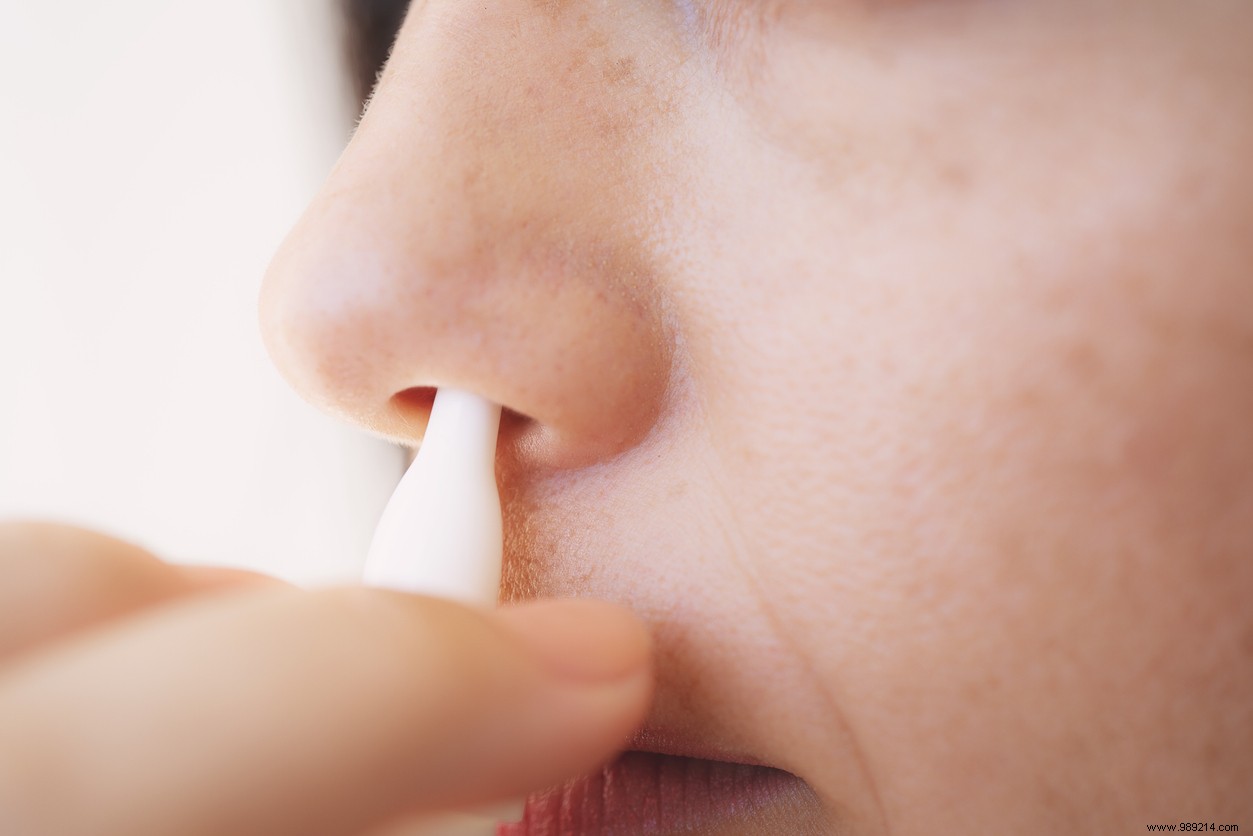Recently, Japanese researchers have developed a non-invasive treatment to treat the physiological effects of depression. The nasal spray in itself is not new, but this one is still a real innovation.
In medicine, nasal sprays are quite present and research continues. In 2020, American researchers created a vaccine against the SARS-CoV-2 coronavirus in the form of a nasal spray. In addition, in 2018, other scientists presented a nasal spray to fight gambling addiction. Now there is talk of a spray to fight depression , as indicated in a publication in the Journal of Controlled Release in July 2021. Researchers from the Tokyo University of Sciences (Japan) indeed indicate that their spray is able to treat depression in about twenty minutes only .
Recall that currently, medicine uses intracerebroventricular (ICV) injections very invasive, and therefore not without risk, because until now doctors had not been able to deliver the molecules directly to the brain . Nevertheless, the spray of the Japanese researchers would be able to do this.

Previous research on the subject has attempted to transfer molecules via the olfactory epithelium , an essential tissue for smell. Nevertheless, this tissue represents only 2% of the nasal mucosa. Thus, the Japanese researchers have targeted their work on the respiratory epithelium which represents the rest of the nasal mucosa. They also knew that the GLP-2 peptide played a role as a messenger between tissues and therefore focused their attention on the latter. During the experiment, the objective was to avoid the degradation of GLP-2 to allow it to pass through the respiratory epithelium unhindered and eventually reach the brain.
Mice were used in the experiment, as they can exhibit depressive disorders quite similar to those of humans. However, the results were very encouraging. After spraying, an improvement in physiological signs of depression occurred only after about twenty minutes. On the other hand, it is only a question of a behavioral improvement, not an improvement in the psychological or mental state.
The researchers believe that this experiment may open the doors to new avenues of treatment for depression. It would also be possible that sprays are emerging to combat other diseases such as Alzheimer's. Finally, remember that in 2019, the FDA in the United States was about to authorize the development of a nasal spray based on esketamine to fight against depression.